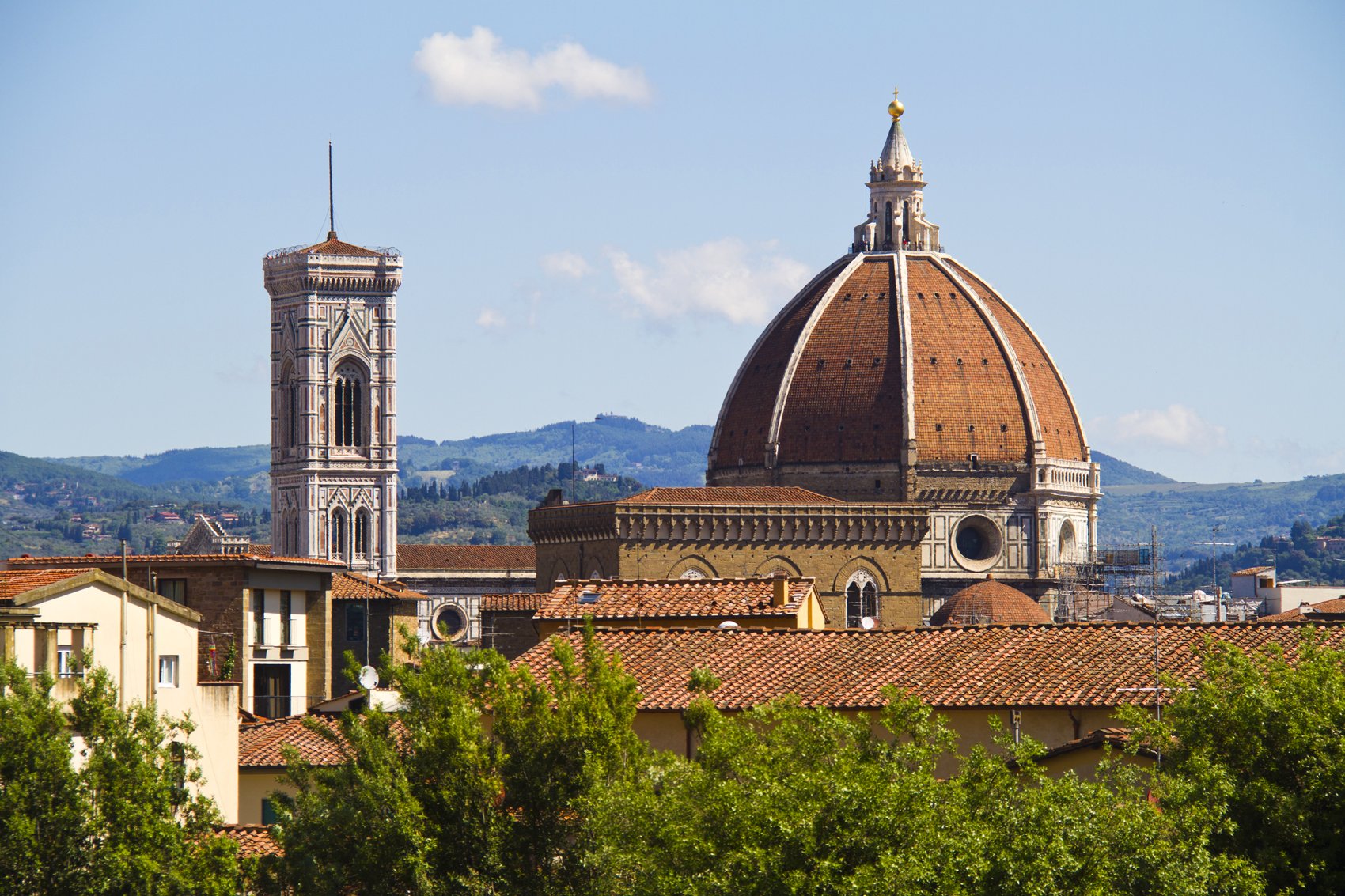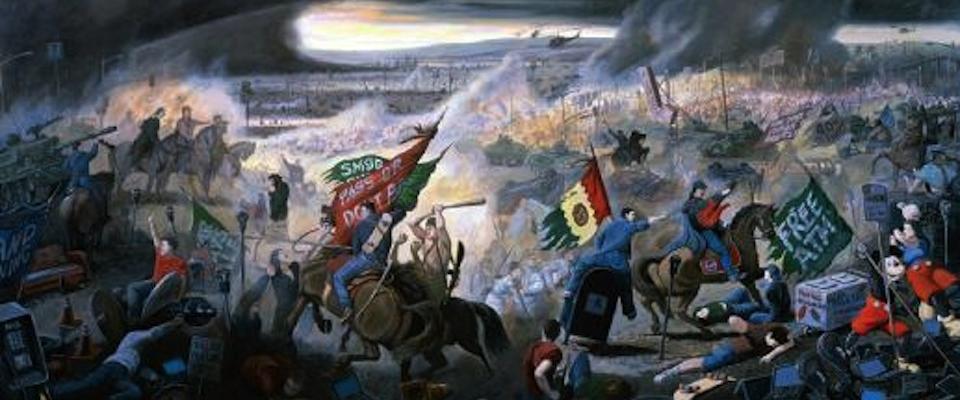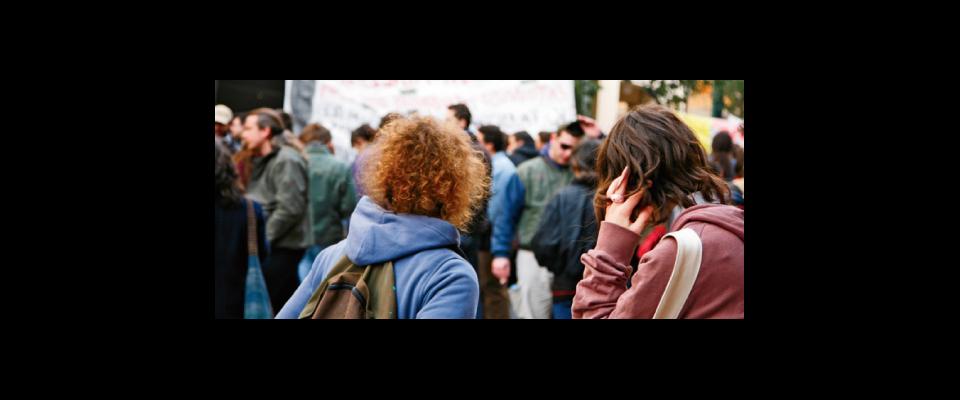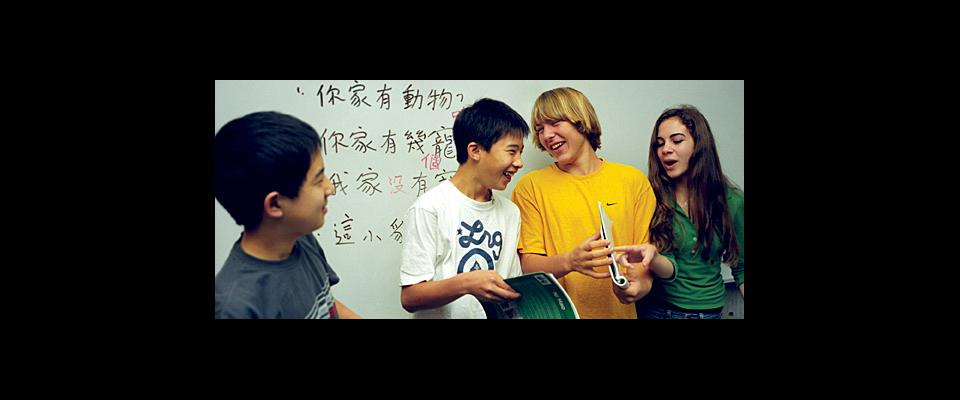In which the author recalls the “Great Earthquake of 1868” in the wake of a much greater one in 1906
During fifty-six years, the whole great globe has been continuously contributing to the population of San Francisco, therefore its destruction was a matter of personal concern to families scattered everywhere upon the globe’s surface. Its population, of four hundred thousand, represented all the races of men, pretty nearly. There is not another city of its size in the world whose destruction could send dread and terror to anything like so many and so widely scattered hearth-stones. New York seems to be suddenly swarming with ex-Californians, and with relatives and intimate friends of existing Californians. Everybody I met seemed to have personal grounds for his interest in the disaster. Some had a pecuniary interest in it. One friend of mine who had been living long in New York on a liberal income furnished by San Franciscan property, had lost most of his possessions and been obliged to remove from expensive quarters to cheap ones in a humble flat. A week before the calamity a young couple, of independent means, dined at my table, and they were full of an excursion around the world which they were preparing to make. Their fortune was in San Francisco. Ten days after the calamity they were aware that they were paupers; they were now seeking employment, for wages. They quickly found it—the wife in New York, the husband in Oregon.
It is thirty-eight years since I last saw San Francisco and was engaged in advancing its prosperity, at thirty or forty dollars a week on the Morning Call, as chief and only reporter. In my day I knew everybody in San Francisco—including most of the dogs and cats—because of my newspaper connection; but now I could not seem to call to mind any of my friends of that early day who would be likely to have been spared thirty-eight years to enjoy the earthquake. After much thinking and recalling, I did dig up out of my memory three or four old friends whom I had reason to believe were still alive; also I established a personal connection in another way. About a week before the disaster the husband of Mme. Sembrich, the Grand Opera star, visited me at 21 Fifth Avenue—the rented house which we call our home—and brought Mme. Sembrich’s autograph album, which I was under contract to her to sign. As he was going away he said:
“It will interest you to know that my wife, with the rest of the Grand Opera Company, is arriving in San Francisco to-day.”
As it turned out, she was not only arriving, but had arrived. And not only had she arrived, but at the time of our conversation the earthquake had shaken her out of the eighth story of her hotel, in night costume, and now she was camping in a public park. The earthquake shook her out of her bed and upset all the furniture in her room. She fled down the rocking stairs nearly to the street, then climbed up to her quarters again to get her jewels, made the descent a second time, this time to the street level, where she found the hotel entrance clogged with fallen building material. Then, being unhappy in her scant apparel, she made the ascent once more to get something, I don’t know what—a hair-pin, I suppose. What I am arriving at is this: that with the globe apparently going to pieces, everything jostling and cracking and crumbling and making a muffled and thunderous clamor of unaccustomed noises, that charming and dainty and delicate and refined little creature was not frightened.
According to innumerable personal accounts of reputable witnesses, the passion of fear was strangely absent at the time of that cataclysm—yet we have the impression that the fright communicated by an earthquake is the most terrible of all frights, and spares nobody. I do not know how to account for this radical change. I was in what was called the “Great Earthquake” in San Francisco a long time ago, and I remember that everybody who came under my notice during the sharp half-minute joggle that it lasted was frightened—except myself. I was not frightened because I didn’t know it was an earthquake. It shook me up violently, and I fell against a house on the street corner; but I supposed, for the moment, that it was a riot inside the house. That interested me instantly and intensely, because I was a newspaper reporter, and was thankful. A moment or two later I recognized that it was an earthquake, and was arranging to get frightened, when I realized that the time for it had gone by, and that it was not now worth while. That earthquake produced two deaths—a lady died from sheer fright, and a young man was so demented with fright that he jumped out of a window and was killed.
My attention is called to this matter of the absence of fright as exhibited in this recent earthquake, by a published letter of Prof. William James, the philosopher, who was visiting at Stanford University, and who noted the wide prevalence of that astonishing absence of panicky fear. To him it was an extraordinary thing, and unaccountable. It is not discoverable in the history of any preceding earthquake, in America or elsewhere. Professor James was shaken out of his quarters, but had no feeling of fright or fear. He was merely strongly and absorbingly interested in the event as being a remarkable one, a memorable one, and one worth going far to experience. He speaks of an undergraduate who was sleeping in the fourth story of a massive stone dormitory of the University, and who was plunged from his bed down through the four floors and into the basement, where he lay imprisoned in wreckage, but not frightened,—and not hurt, so far as he knew—only surprised, with a surprise tinged with regret, for it was hardly five o’clock in the morning and he hadn’t finished his sleep. He worked his way up through the crazy ruins, reached what was left of his room in the fourth story, accumulated remnants of his clothes from here, there, and yonder, covered his nakedness with them, and went off to see what had been happening to other people. He was still unaware that he was hurt, yet before noon he was in the hospital, and it took him a week or two there to get mended up so that he could get out and on his feet again.
As I say, I dug out of my memory several friends of the days of thirty-eight years ago, to get anxious about. One was Joe Goodman. He is safe—nothing happened to him. Another was “little Ward,” who was a compositor on the Morning Call in my time—and he used to go with little Steve Gillis and me to the beer saloons in Montgomery Street when work was over, at two o’clock in the morning, and where I used to sit around till dawn and have a restful, pleasant time, while little Ward and Steve—weighing ninety-five pounds each—good-naturedly picked quarrels with any strangers over their size who seemed to need entertainment, and they always thrashed those strangers with their fists. I never knew them to suffer a defeat. They never assisted each-other. If one had offered to assist the other against some overgrown person, it would have been an affront, and a battle would have followed between that pair of little friends—a battle which would have continued for years and could never have been decided, because those boys were absolutely equally matched in scientific fisticuffs. We three were about of an age—I twenty-nine, and they twenty-seven.
Thinking over these hallowed memories I presently remembered that little Ward sent a bullet through his head several years ago, when he had reached the age of sixty-five. My solicitude was now diminished to little Steve Gillis and his brother Jim. As I have before remarked, I had been a boarder in their parents’ house for a year or two, in those days, and was very intimate with the young sons and daughters of the family. I was presently to learn that the Gillis boys were safe. One day a card was brought up to my room, the address upon which was “Richard Williams, San Francisco.” I had the proprietor of it brought up to my den at once, for I wanted to make inquiries. He was tall, broad shouldered, muscular; with a strong jaw and a determined face, gentlemanly in his dress and manners, and apparently about forty years old. He wore no beard, and his face was a fearful spectacle to look upon. It was a riot and confusion of broad and slick scars, which overlapped each-other like the scales of a fish—the sort of scars that fire makes. I said to myself, “He doesn’t need to put San Francisco on his card. Anybody will know that he is back, recently, from there, or from Perdition; for he never could have got that work of art from any but one or the other of those places; they don’t turn out that complete and perfect kind, elsewhere—in this world or anywhere else.” It was a brutal rudeness to stare at him, but I couldn’t help it. There was a fascination—a grisly fascination—about his aspect which made it impossible for me to keep my eyes off his face; and I think that wherever he goes he must find that the rest of the world are like me—they can’t resist.
He said, “Mr. Clemens, you don’t know me. You’ve never seen me. But I am the eldest son of the eldest of the Gillis sisters.”
“Oh impossible,” I said, “why they were nothing but young girls.”
“Yes,” he said, “so they were, but they didn’t stay so.”
“Well,” I said, “I see how it is. Those young girls have remained young girls in my memory all this time, but they could have grown up in the meantime; it has happened before. Well, it does seem very strange that you, a great stalwart man, should actually be the offspring of one of those young creatures. How old are you?”
He said he was thirty-seven, but was often taken to be older.
That looked likely and reasonable, but I didn’t say so. He told me that his uncles, little Steve Gillis and Jim, were both in the hospital at the time of the earthquake and the fire, and that although the hospitals had turned out to be particularly fatal places at the time of the catastrophe because the inmates were not able to aid in their own rescue, Jim and Steve had escaped. That was natural. They are the bravest of the brave. You might break their legs and their backs, too, and they would fight their way out of a danger that would be fatal to ordinary men with all their bones about them in good repair.
I am going to confess that I don’t know to this day how he got those scars. I had a delicacy about asking him how he got them. I knew there were only just the two places, hell or San Francisco, and so—moreover, I knew that if he had any sensitiveness about it he would throw me out of the window. He looked like just that determined kind of a man. I wish I knew whether he was in that San Francisco fire and got burned up and escaped—but I never shall know.




















